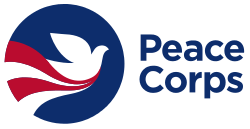 Kate Puzey was a 24-year-old Peace Corps volunteer from Cumming, Georgia, who was murdered in 2009 in the West African village of Badjoude, Benin, soon after she had reported a colleague for allegedly molesting some of the young girls they taught. The story prompted the USA television network 20/20 to do an investigative piece about women Peace Corps members who were sexually-assaulted while serving abroad, and how these women’s needs both before and after these crimes were not addressed by the Peace Corps. The media attention and public outcry lead to the Kate Puzey Peace Corps Volunteer Protection Act of 2011, legislation that provides whistleblower protection for Peace Corps volunteers, a safeguard that is was in place for federal employees but not for Peace Corps volunteers at that time, protection that would have given Kate more protection when she reported her allegations. In addition, the legislation requires the Peace Corps to develop sexual assault risk-reduction and response training and protocol in consultation with experts that complies with best practices in the sexual assault field. The training also was to be tailored to the specific countries in which volunteers serve.
Kate Puzey was a 24-year-old Peace Corps volunteer from Cumming, Georgia, who was murdered in 2009 in the West African village of Badjoude, Benin, soon after she had reported a colleague for allegedly molesting some of the young girls they taught. The story prompted the USA television network 20/20 to do an investigative piece about women Peace Corps members who were sexually-assaulted while serving abroad, and how these women’s needs both before and after these crimes were not addressed by the Peace Corps. The media attention and public outcry lead to the Kate Puzey Peace Corps Volunteer Protection Act of 2011, legislation that provides whistleblower protection for Peace Corps volunteers, a safeguard that is was in place for federal employees but not for Peace Corps volunteers at that time, protection that would have given Kate more protection when she reported her allegations. In addition, the legislation requires the Peace Corps to develop sexual assault risk-reduction and response training and protocol in consultation with experts that complies with best practices in the sexual assault field. The training also was to be tailored to the specific countries in which volunteers serve.
Seven years after Kate’s death, and six years after the legislation named for her, the Final Evaluation Report: The Peace Corps’ Sexual Assault Risk Reduction and Response Program (IG-17-01-E) was released by the USA Office of Inspector General on November 28, 2016. I missed it at its release, and just stumbled upon it online a few weeks ago.
The evaluation found that Peace Corps largely complied with the requirements in the Kate Puzey Act and that, compared to an evaluation in 2013, the Peace Corps markedly improved how it supported volunteers who had reported a sexual assault. However, the inspector general also found individual cases where the Peace Corps did not meet its standard to respond effectively and compassionately to victims of sexual assault, including a few instances of victim blaming and improperly sharing confidential details with staff. “Some applicants were either not aware of the crime and risks previous Volunteers had faced in their country of service or they did not understand the information that was provided to them.” From the executive summary:
We found that the Peace Corps had developed its sexual assault training in accordance with the
Kate Puzey Act requirements: it incorporated available best practices, it consulted with experts in
the sexual assault field, and it involved the Office of Victim Advocacy in the training design
process.
However, we found that some Volunteers had not learned important information in the sexual
assault risk reduction and response sessions, including the difference between restricted and
standard reporting, the services available to a victim of a sexual assault, how to report a sexual
assault incident, and the identity and role of Sexual Assault Response Liaisons at post. The
training was insufficiently tailored to the country of service (as required by the Act), was not
responsive to the needs of diverse Volunteers, and did not address the problem of sexual
harassment. In addition, some staff delivered the training inconsistently due to poor training
skills. Furthermore, the Peace Corps’ approach to assessing the Volunteer training was
incomplete and did not provide a useful measure of training effectiveness.
You can read the full report here. Whether your nonprofit or government agency is international or entirely local, whether your paid or volunteer staff work in various sites or all under one roof, you should read this report and think about how your agency is, or isn’t, equipped to ensure the safety of employees, consultants, volunteers and clients, and ways to improve.
Peace Corps volunteers who are the victim of a crime have access to professional victim advocates 24 hours a day at 202.409.2704 or victimadvocate@peacecorps.gov. The Peace Corps provides an around the clock, anonymous sexual assault hotline accessible to volunteers by phone, text, or online chat that is staffed by external crisis counselors at pcsaveshelpline.org. Call from outside the USA: 001.408.844.HELP (4357). From within the USA: 408.844.HELP (4357). Read more from the Peace Corps regarding its Sexual Assault Risk Reduction and Response (SARRR) efforts.
Also see:
- Creating a Speak-up Culture in the Workplace
- Why don’t they tell? Would they at your org?
- Safety in virtual volunteering
- Keeping volunteers safe – & keeping everyone safe with volunteers
- Screening applicants by reviewing their online activities
- My consulting services
- Misconceptions re: VSO, UNV & Peace Corps
- Peace Corps Volunteer Protection Act of 2011 (for Kate Puzey)
- Survey for Returned Peace Corps Volunteers Re: Safety
- Peace Corps must better address assaults and murders of members
- Is it really *impossible* to break into humanitarian work?
